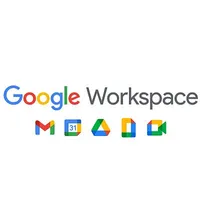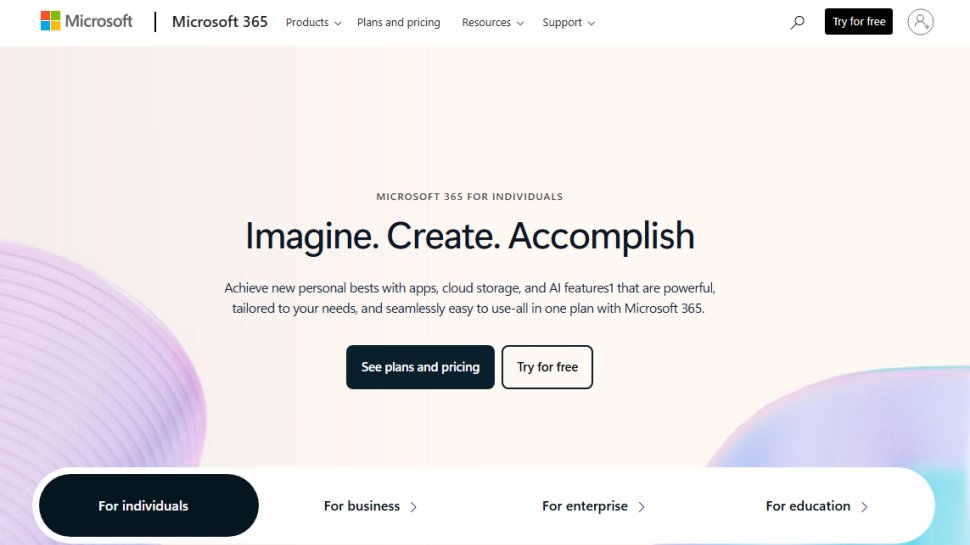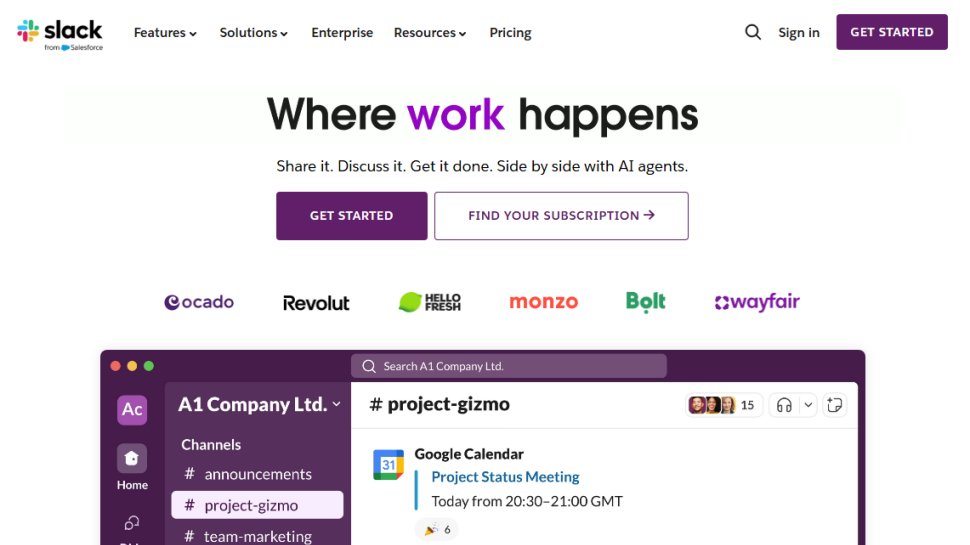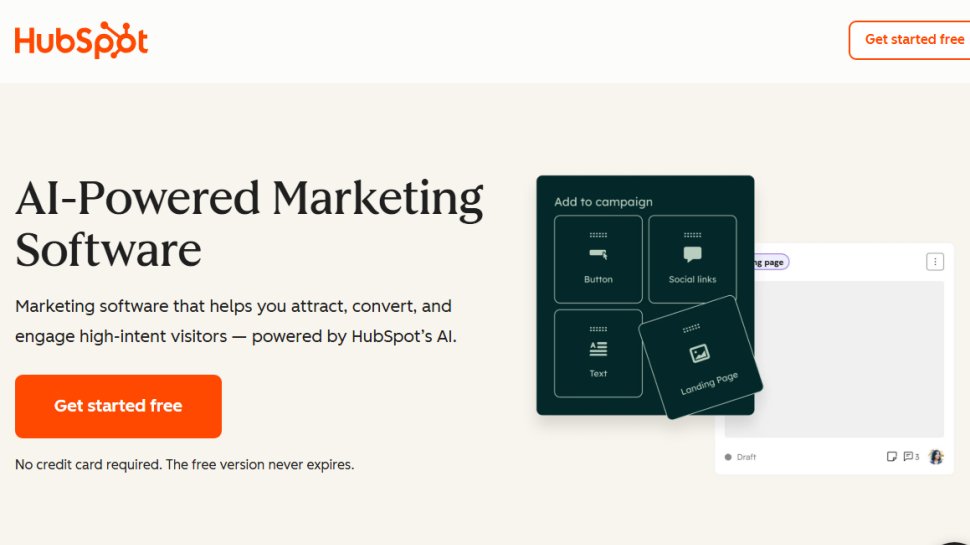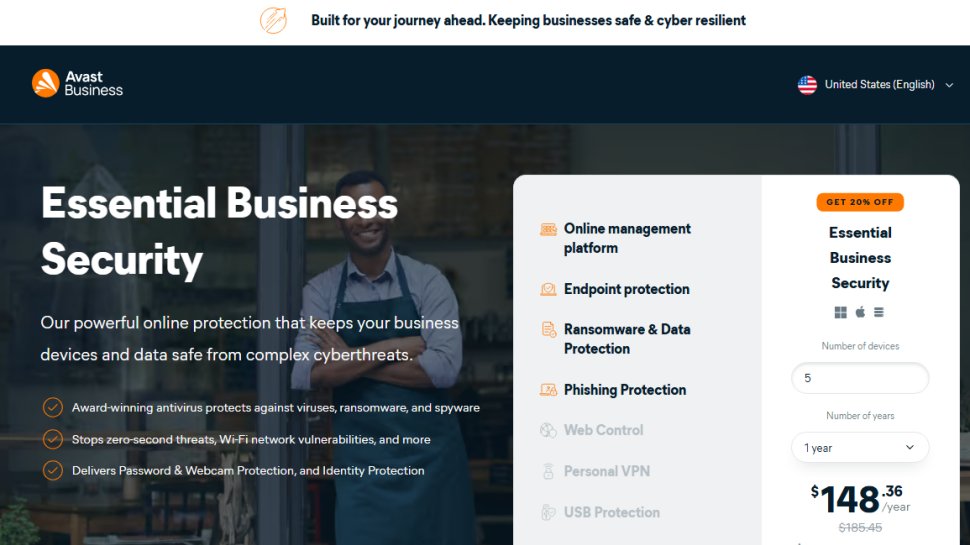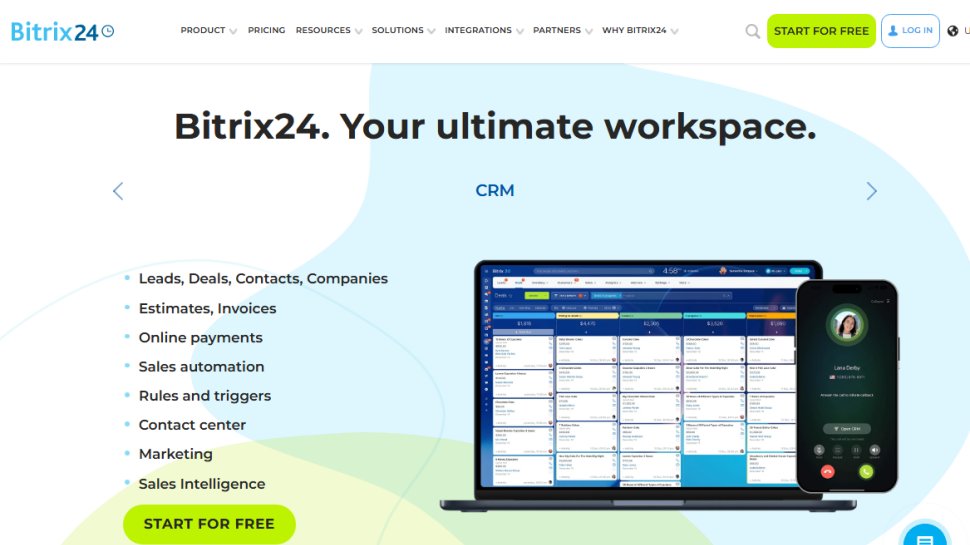Best small business software of 2025
Improve your productivity and business outreach

We list the best small business software, to make it simple and easy for businesses to find economic ways to become more efficient and still access the best tools for their needs.
While there are obvious basics, such as productivity suites and accounting software, it's always good to have a general idea of what different types of software are out there, so that the moment you identify a need, you can identify a solution. This is especially the case when you start to grow and find yourself wanting to communicate and collaborate with new employees, customers, or suppliers.
Luckily, there is a lot of competition online in the business software market, and while there are big name products priced for big name clients, there are always smaller and cheaper packages which can be just as good. The challenge is to find not just the type you need, but the one that comes in at the right price for you.
However, even some of the more seemingly expensive software suites sometimes have a free tier, so you can try it out and see if it works for you - and if it does, you can grow into the software as your business cashflow improves.
Even better is that sometimes there are free alternatives to paid-for brand name suites, though often it's the case that you get what you pay for, and cheap or free can come with limitations.
We'll therefore look to list a wide range of software types that it's good to be familiar with, and feature the best on the market, so that should you develop a need for anything in particular, you already have an idea of what to look for.
Here are the best small business software solutions currently available.
Your Business All-in-One. Email, Docs, Storage & AI in a Single Suite. Get Google Workspace Today and save 15% on Starter, Standard and Plus for 12 months (Flex & Commit).
We’ve also picked out the best small business web hosting.
The best small business software of 2025 in full:
Why you can trust TechRadar
Best small business software: Best office software
Reasons to buy
There are many rivals, but Microsoft still provides the best office software suite, and Microsoft 365 delivers a cloud version you can use on the go as well as at home or in the office. This makes it the workhorse of many businesses of every size, from sole traders to enterprises.
The first thing going for Microsoft 365 is its familiarity - if you've used Microsoft Office before you'll easily find your way around this platform. Even if you haven't and have used rivals instead the same still applies because Microsoft Office is the market leader that others attempt to copy.
The second is that Microsoft 365 works in the cloud, which offers several advantages, the first being that you can use it on the go with your smartphone or tablet, but the second being that all your documents are saved online in the cloud with OneDrive. This means you don't have to worry about losing important files to a hard drive crash, and also that you can switch between devices without losing your work.
Pricing can seem a little more expensive than it used to be for buying a standalone license for Microsoft 365 Personal, which provides you with Word, Excel, Powerpoint, Publisher, and Access, with online emails served by Outlook, and OneDrive for cloud storage of documents.
There's also Microsoft 365 Home which offers up to six licenses which could be ideal and cost-efficient for distributing around employees if you have five or less. Microsoft 365 Business Premium is targeted at larger businesses and includes Sharepoint, Microsoft Exchange, and Microsoft Teams.
Altogether, Microsoft 365 delivers what you need in terms of an office software and admin platform, and remains superior in terms of functionality than rivals. Additionally, expect to find many suppliers and contractors also using it, making it easy to share, swap, or send send files between your both without any problems.
Read our full Microsoft 365 review.
Best small business software: Best for communications
Reasons to buy
Reasons to avoid
Believe the hype, or at least part of it – Slack may not have killed off email just yet, and it can turn into a time sink if you're not disciplined in how it's deployed, but it's also fair to say that this communications platform has helped transform the way that a lot of small business teams keep in touch.
Like all the best software tools, the basic idea is very simple: real-time messaging in web browsers, mobile apps, and desktop clients. Team members can chat one to one, or in groups, or in channels based around topics (sales, finances, products and so on).
What Slack does well though is bring that simple idea to life very intuitively, with a slick and responsive interface, and a host of integrations, plug-ins and shortcuts to keep the conversation flowing. All the functions you think you might need, from file transfers to video calling, are right there for you.
You don't get much out of Slack for free but it gives you a feel for the app, and should be fine for smaller teams. At the highest pricing tier, you get round-the-clock support and a guaranteed support response time of four hours, as well as unlimited message archives.
Read our full Slack review.
Best small business software: Best project management software
Reasons to buy
Reasons to avoid
Got both a team and multiple projects to manage? Asana helps you work out who should be doing what at any given moment, maximizing the chances of everything coming together on deadline (though you do need a certain amount of talent and hard work from your staff as well, of course).
As with the other software tools in this list, it's not just the features that Asana has that make it special – it's the way those features are wrapped up in an elegant and accessible interface that's easy to navigate around and works across mobile apps and the web without missing a beat.
We also like the way Asana integrates very well with more than a hundred other products and services. All the big names are included – Dropbox, Slack, Gmail, Salesforce and so on – and this means Asana is flexible enough to fit right into whatever workflow you've got set up at the moment (or want to try in the future).
Whether you're mapping out the steps in a project, assigning duties and responsibilities, checking on the current status of a plan or trying to get a 'big picture' look at exactly what's happening at any given moment, Asana makes the process much more straightforward than you might expect.
Read our full Asana review.
Best small business software: Best sales and marketing app
Reasons to buy
Hubspot is a platform that provides a range of tools for content management, sales and marketing, and social media advertising. Hubspot goes way beyond simply setting up a website and editing its content, as much as delivering a wide-ranging toolkit to help improve conversions, and ranks as our top pick for best content marketing tools as well as features in our best CRM software.
It does this by offering options for split testing, content hosting, communications within a sales team and with customers, along with goals and targets that can be tracked using Hubspot's analytics software.
There are also a number of additional integrations available, not least Salesforce, Google Workspace, and Microsoft 365.
All in all, Hubspot probably isn't the best at any individual feature that it offers, but the comprehensive set that it does offer makes it a clear market leader, and the best at what it does.
Even better, there's a free tier for trying out Hubspot.
Read our full HubSpot review.
Best small business software: Best unified workforce management system
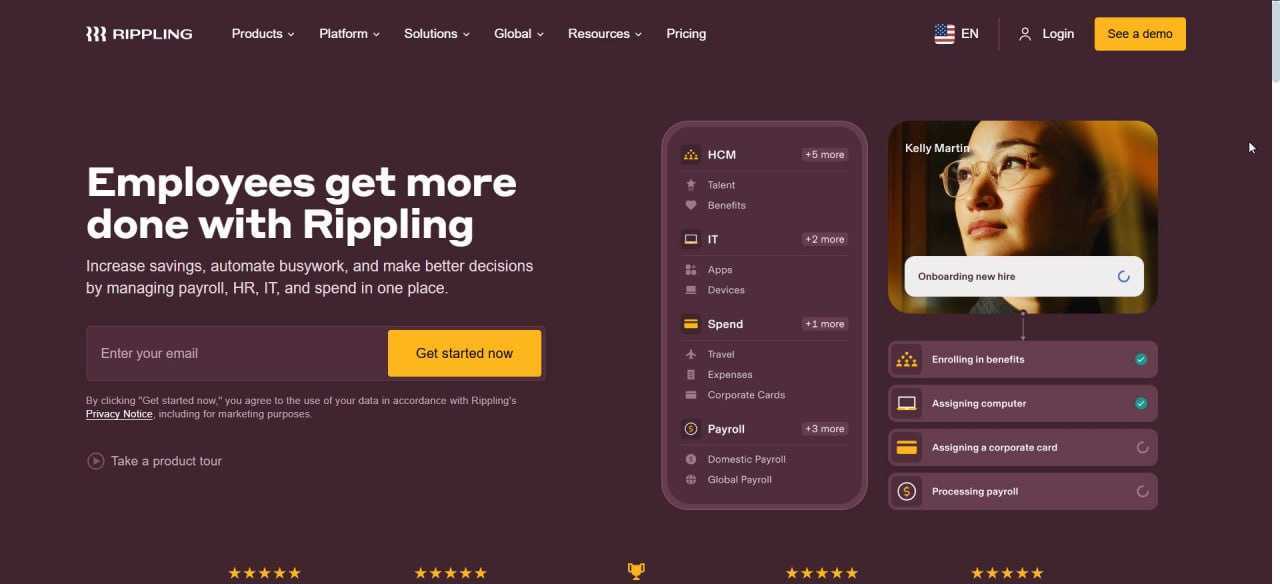
5. Rippling
Reasons to buy
If you’re looking for software that will help you cover all aspects of supporting your staff (find, hire, onboard) to optimizing your investment in your company’s workforce, then Rippling HR is your go-to solution. Even if you’re a small business owner, you can enjoy the benefits, which include payroll management, time tracking, and onboarding processes.
The mobile app offered by Rippling will enable your employees to clock in and out easily. This will ensure that all data is tied to the payroll management module automatically. Onboarding is also handled by the app, extending from headcount management, job posting, to offboarding and replacement planning.
Most of the workflow offered by Rippling can be automated via Workflow Studio, which automates almost all HR processes. Moreover, compared to other, bogged-down platforms, Rippling is easy to use and set up.
For the pricing, you will need to contact a sales representative, but in general, the pricing will depend on the package you need. For the Core package, the prices start as low as $8 per employee. Additional packages and services can bump the pricing up to $29 per employee.
Best small business software: Best antivirus
Reasons to buy
Avast Business is an excellent business antivirus and online security platform, giving you various tools such as antivirus, firewall, email protection, anti-spam and the ability to sandbox applications for complete security. Avast Business also includes a number of tools for your servers, and ranks top of our best business antivirus as well as our best antivirus in 2021 guide.
The AV protection you get is generally rated as good by independent testing, with Avast's engine blocking 99.7 per cent of threats in AV-Comparative's Real-World Protection report.
The free version of Avast has long been considered one of the best for home users, but If value for money and simplicity are key factors, Avast Business could be a sensible choice.
Read our full Avast Business Antivirus review.
Best small business software: Best small business tools
Reasons to buy
Bitrix24 provides a vast suite of powerful business tools: collaboration, instant messaging, telephony, project management, document handling, scheduling, employee management, and more.
If you prefer to keep things simple then you can concentrate on the excellent CRM, which is a capable system all on its own. Contacts and communications are logged, leads assigned to sales managers, emails sent, calls recorded, quotes and invoices issued. Detailed reports keep you up-to-date and there's convenient access via the mobile app.
Bitrix24's unusually generous free account supports 12 users and includes 5GB storage, but if you need more, there are additional paid-for accounts which offer more and for more users.
Overall, Bitrix24 is offers a powerful suite of tools that is especially going to be handy for small businesses and start-ups to help them develop and grow through improved productivity, all in one platform.
Read our full Bitrix24 review.
Other small business software to consider
We've barely touched the surface of all the different software options a small business might want to consider, not least as there are multiple areas of interest and a strong range of competitors who want to offer the best product for you. However, here are a few more that get honorable mentions, either because they're positioned so well in their respective industries, or they offer a wider ranger of features-and all of them geared toward small businesses:
Paypal is a long-established merchant gateway provider for taking online payments, and has since moved into physical retail as well as pay and go mobile card readers. All of which means that if you need a payment provider, Paypal can cover you well, no matter what sort of business you have. There's no monthly fee for the basic plan, which will cover online ordering, which helps reduce upfront fees. And once you're well established with a good sales volume and turnover, if you'd prefer to cut down transaction fees then you can switch to a merchant account where for a monthly fee upfront you'll pay mostly interchange rates on each transaction.
Zoho provides so many different software and apps for small business the bigger question might not be what they do, but what they don't. Zoho provides such a comprehensive range of solutions that it's impossible to do the company justice here, suffice to say that they-currently-provide at least 45 apps covering everything from sales, help desk, finance, people, IT, office, project management, and collaboration. What's even better is that not only do these all integrate with each other, but also often integrate with other popular business software platforms. If you need to do something, Zoho probably have already released software to do it!
Adobe Creative Cloud is probably another toolkit to consider here, not least because of Adobe's real strengths in creativity and design, as well as PDF management-something every business will have to address at some point. Adobe sell different apps in different groups, however, so it's important to ensure you're looking at the correct set. However, don't be surprised if you end up subscribing to multiple apps, not least the creativity bundle that includes Photoshop, and Adobe Acrobat for creating, editing, annotating, and signing PDF files.
Salesforce is possibly the leading sales solution for businesses of many sizes. Whether you're looking to focus on online or offline marketing, telephone or email sales, then this is an all-in-one platform that aims to bring customer sales and relationships together. However, it's not just about logging numbers and ticketing as much as improving all-round efficiency. This means you can look to improve key metrics across all processes, not least your sales and CRM channels, ensuring both a good synchronicity and efficiency between them.
Going mobile? We've featured the best small business apps.
Best small business software FAQs
Which type of small business software is best for you?
When deciding which small business software to download and use, first consider what your actual needs are, as sometimes platforms that aim to do a lot of different things may not offer such an extensive range of tools as one that focuses on one particular area. Additionally, budget software options can sometimes provide all the tools you may need, but higher-end software can really cater for the specialist, so do ensure you have a good idea of which features you think you may need to save on the pain of changing to a different software platform later on.
How we tested the best small business software
To test for the best small business software we first set up an account with the relevant software platform, whether as a download or as an online service. We then tested the service to see how the software could be used for different purposes and in different situations. The aim was to push each software platform to see how useful its basic tools were and also how easy it was to get to grips with any more advanced tools.
Read how we test, rate, and review products on TechRadar.
Get in touch
- Want to find out about commercial or marketing opportunities? Click here
- Out of date info, errors, complaints or broken links? Give us a nudge
- Got a suggestion for a product or service provider? Message us directly
- You've reached the end of the page. Jump back up to the top ^
Sign up to the TechRadar Pro newsletter to get all the top news, opinion, features and guidance your business needs to succeed!

Dave is a freelance tech journalist who has been writing about gadgets, apps and the web for more than two decades. Based out of Stockport, England, on TechRadar you'll find him covering news, features and reviews, particularly for phones, tablets and wearables. Working to ensure our breaking news coverage is the best in the business over weekends, David also has bylines at Gizmodo, T3, PopSci and a few other places besides, as well as being many years editing the likes of PC Explorer and The Hardware Handbook.
